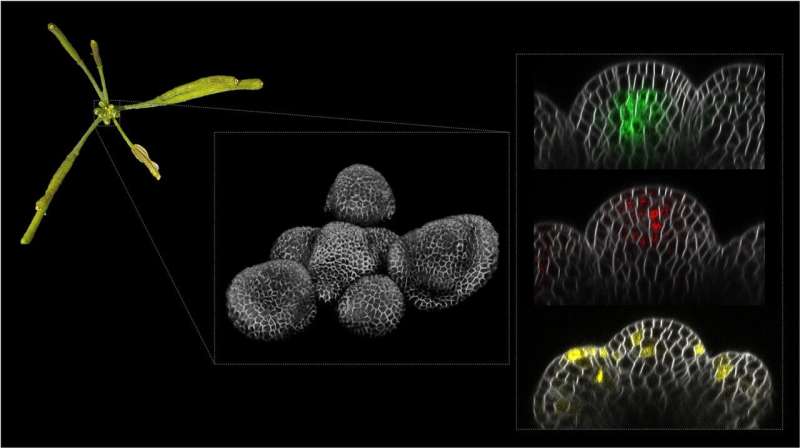The mechanisms that produce 'menopause' in plants identified

In those plants with a single reproductive episode, called monocarpics, the onset of reproduction is marked by the formation of the first flowers. The signals that control the start of flowering are highly studied (light, seasonal changes, temperature, age of the plant, etc.). However, there is another critical event for reproduction: its end. In many species, flower production stops after the production of a certain number of fruits. This stoppage is marked by the cessation of the activity of meristems, the stem cell reserves that maintain the growth and production of plant organs.
"This process is known as a proliferative arrest, which we could call plant menopause," explains Cristina Ferrándiz Maestre, a researcher at the IBMCP and one of the authors of the study published today. "The proliferative arrest represents a great evolutionary adaptation since, by not forming new organs such as flowers and fruits, the redistribution of nutrients towards the production of seeds is ensured, hence allowing their optimal development and thus perpetuating the species," clarifies Ferrándiz .
Despite its ecological and economic relevance, little is known about the factors that control the proliferation arrest. For this study, Ferrándiz's research group at IBMCP has applied molecular and cellular biology, genetics and image analysis techniques to the model species Arabidopsis thaliana to be able to define with high spatio-temporal resolution the sequence of molecular and cellular events that trigger the proliferation arrest.
Cytokinins that control the arrest
"On the one hand, we have carried out a very detailed study of the changes that occur in the meristem before the arrest, that is, how and when the cells arrest dividing, when the first signs of aging of the meristem are seen, when the activity of the stem cells disappear... It is like zooming in on the meristem to understand what phases take place and what characterizes them," says Paz Merelo, an IBMCP researcher who is leading the study thanks to the ComFuturo program of the Fundación General CSIC.
"On the other hand, we have studied important plant hormones to maintain proliferation, called cytokinins. Thanks to fluorescent markers that allow us to follow their activity, we have seen that their activity is completely blocked at the moment of the arrest, so it is likely that the cytokinins are the triggers of the arrest," reveals Merelo. "In addition, we have verified that, if we treat the meristems with cytokinins externally, they do not arrest producing stem cells," she says.
Groundbreaking study with several applications
"The study is truly groundbreaking, since for the first time we have been able to see from up close how meristems behave and what changes they undergo. This will allow us to design new experiments to control the flowering period and its end, or to identify more factors involved in its control," assures Cristina Ferrándiz. The proliferation arrest is a common process in a wide range of species, so the processes described in this study are relevant for new biotechnological approaches aimed at increasing the harvest in crops by extending the duration of the flowering period, or by delaying the proliferation arrest.
According to Ferrándiz, "Since this study shows that cytokinins prevent the proliferation arrest and, therefore, extend the production period, the routes related to these hormones are promising targets in improvement programs." "In addition, the yield of many crops depends to a great extent on environmental conditions, so obtaining plant varieties with a more extensive reproductive phase, or with a late proliferation arrest, would allow adjusting production in the face of specific climatic changes," says the CSIC researcher.
More information: Paz Merelo et al, A cellular analysis of meristem activity at the end of flowering points to cytokinin as a major regulator of proliferative arrest in Arabidopsis, Current Biology (2021). DOI: 10.1016/j.cub.2021.11.069
Journal information: Current Biology
Provided by Universitat Politècnica de València




















